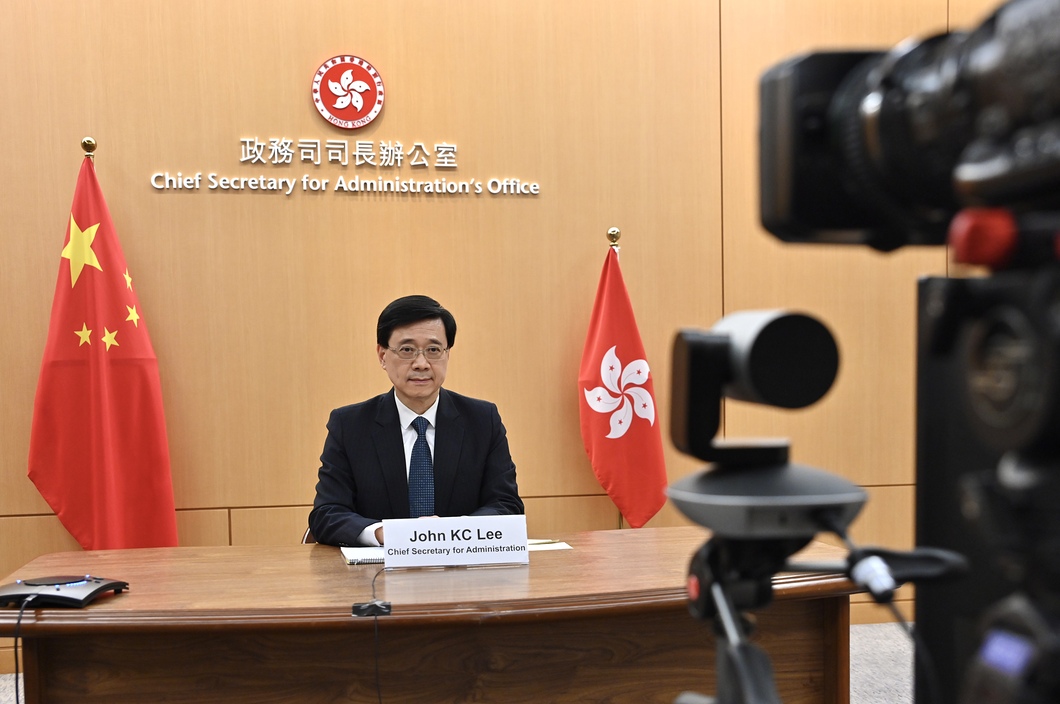British Politicians Manipulating the Rule of Law
31 March 2022
Yesterday, two British judges announced their resignation from the office of Non-permanent Judge of the Court of Final Appeal (CFA) of the Hong Kong Special Administrative Region (HKSAR). In the same hour that they announced their decision, the House of Commons of the Parliament of the United Kingdom (UK) debated whether British judges should sit on courts in Hong Kong. Thereafter many British politicians voiced their support for the resignation. The chronology of events revealed that the whole thing was a planned political manoeuvre, a deliberate political farce targeting China, and a despicable act of “putting politics over the rule of law”.
The despicable actions of the British side included:
(1) Putting pressure on its judges intentionally, thus violating the pledge to the rule of law which the UK has upheld for the past 25 years by allowing British judges to sit on Hong Kong courts. Such a political boycott was instigated for political gains.
(2) Making false and malicious accusations despite being conscious of the judicial independence in the HKSAR as clearly entrenched in the Basic Law, thus manifesting the UK’s double standards. Article 85 of the Basic Law reads: “The courts of the HKSAR shall exercise judicial power independently, free from any interference. Members of the judiciary shall be immune from legal action in the performance of their judicial functions.” The UK’s action was like a thief crying out for help, which was shameful.
(3) Turning a blind eye to the provisions of the Hong Kong National Security Law (HKNSL) that protect human rights and the rule of law. Chapter I of the HKNSL contains the general principles of the entire law, and two of its six articles are devoted to the protection of human rights and the rule of law.
Among these provisions, Article 4 reads: “Human rights shall be respected and protected in safeguarding national security in the HKSAR. The rights and freedoms, including the freedoms of speech, of the press, of publication, of association, of assembly, of procession and of demonstration, which the residents of the Region enjoy under the Basic Law of the HKSAR and the provisions of the International Covenant on Civil and Political Rights and the International Covenant on Economic, Social and Cultural Rights as applied to Hong Kong, shall be protected in accordance with the law” and Article 5 reads: “The principle of the rule of law shall be adhered to in preventing, suppressing, and imposing punishment for offences endangering national security. A person who commits an act which constitutes an offence under the law shall be convicted and punished in accordance with the law. No one shall be convicted and punished for an act which does not constitute an offence under the law. A person is presumed innocent until convicted by a judicial body. The right to defend himself or herself and other rights in judicial proceedings that a criminal suspect, defendant, and other parties in judicial proceedings are entitled to under the law shall be protected. No one shall be liable to be tried or punished again for an offence for which he or she has already been finally convicted or acquitted in judicial proceedings.”
The fact that the general principles are placed in Chapter I highlights the importance of these provisions. Any court decision must conform to the general principles. Similar provisions which explicitly protect human rights and the rule of law can also be found in the Basic Law. To criticise the HKNSL for undermining the rule of law is to turn a blind eye to these provisions and to smear the HKNSL.
National security is a matter within the sovereignty of a state. Different countries have their own national security laws. With its own provisions in many areas, the UK has however adopted double standards and wantonly interfered in Hong Kong’s affairs, violating the Charter of the United Nations, which provides against intervention in matters which are essentially within the domestic jurisdiction of any state, as well as contravening the basic principles of international law.
In Hong Kong, as stated in the Basic Law, judicial independence comprises various aspects like judges being free from any interference in the adjudication of cases, court rulings being based on the law and the facts of a case, judges being immune from legal action in the performance of their judicial functions, and the power of final adjudication being vested in the CFA. The fact that the Basic Law provides that the CFA may invite overseas judges to sit on it as required is a show of confidence in the rule of law in Hong Kong as well as a demonstration of the openness and integrity of “One Country, Two Systems” and the Basic Law. In contrast, the British side has exposed the hypocrisy and inferiority of British politicians by breaching its pledge on the BNO issue, boycotting the Beijing Winter Olympics for political reasons and now politically manipulating the rule of law.


